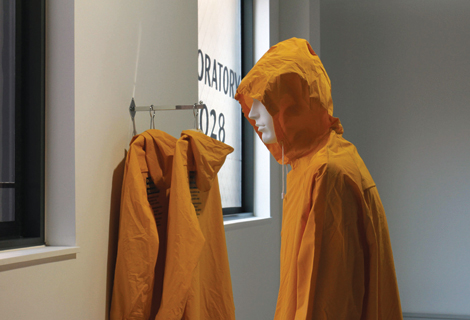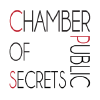KLAUS SCHAFLER
Hacking the Future and the Planet focuses on the ambivalent character of large‐scale interventions in the global climate system, geoengineering technologies that “hack the planet” to slow or even reverse our civilizations’ impact on the climate and environment to counter global warming. On a local level, geoengineering technologies also include modifications like huge dikes that could possibly prevent the Maldives, Venice or New York, all three at risk of flooding due to global warming and rising sea levels, of their somewhat similar destinies. However, the side effects of these constructions, as well as of other geoengineering laboratory experiments or field tests, on natural and cultural habitats are unpredictable and pose numerous ethical and geopolitical questions.Who should decide if the application of geoengineering technologies would be legitimate and suitable to save the nature of unique places for humanity and above all for their local populations?

The work of the interdisciplinary artist Klaus Schafler refers to the notion of public sphere and phenomena of transition and transformation in different (sub-) urban and geopolitical frameworks. In a situationist manner, Schafler creates scenarios that illustrate what would happen if we were to follow the simple formula of politics. In artistic pseudo-laboratory situations, he explores societal realities, futurology, false prognoses and failed experiments, fictions, science, and responsibility and knowledge mainstreams.
His long-term research project „2050“- the year, which is often used as the „horizon“ for climate change – focuses on different aspects within this debate. Over the last years a research grant (art-science initiative) by the Austrian Federal Ministry for Education, Arts and Culture, 2010 – 2012 made it possible for him to travel around the world in order to talk to scientists and activists, who deal with weather manipulation and geo-engineering in theory and practice in a wide range.
His work and interventions as well as the published book “Hacking the Planet and Future” (2013) offer diverse insights into the complicated relationship between micro aspects and „world“ as relational terms.Recent and upcoming shows/projects involve venues like NGBK, Berlin / Art Share LA, Los Angeles / Regionale 12, Murau / Johnson Design Center, Parsons, The New School, New York / Hacking Kulmland, Main Square Pischelsdorf / Space for Art and Industry, New York / Borderline, European Capital of Culture, Maribor / JAUS, Los Angeles / KSAK, Center for Contemporary Art Chisinau / Minoriten Galerien Graz / Anni Art Gallery, 798, Beijing


